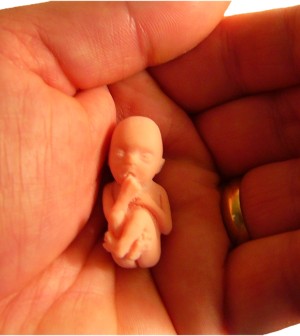- Could Your Grocery Store Meat Be Causing Recurring UTIs?
- Are You Making This Expensive Thermostat Error This Winter?
- Recognizing the Signs of Hypothyroidism
- 10 Strategies to Overcome Insomnia
- Could Artificial Sweeteners Be Aging the Brain Faster?
- Techniques for Soothing Your Nervous System
- Does the Water in Your House Smell Funny? Here’s Why
- Can a Daily Dose of Apple Cider Vinegar Actually Aid Weight Loss?
- 6 Health Beverages That Can Actually Spike Your Blood Sugar
- Treatment Options for Social Anxiety Disorder
14 Percent of Toddlers May Be Drinking Coffee


Although they may just be learning how to say the word coffee, about one in seven 2-year-olds in Boston drinks the caffeinated beverage, a new study finds.
Researchers analyzed information from 315 mothers and their babies. They discovered that 14 percent of 2-year-olds were given coffee by their parents — on average, slightly more than one ounce of coffee a day. Some drank as many as four ounces a day, according to the study.
The researchers also found that 2.5 percent of 1-year-olds were given coffee.
Infants and toddlers of Hispanic mothers were more likely to drink coffee than those of non-Hispanic mothers, and girls were more likely than boys to drink the beverage, according to the study.
“Our results show that many infants and toddlers in Boston — and perhaps in the U.S. — are being given coffee and that this could be associated with cultural practices,” principal investigator Anne Merewood, director of the Breastfeeding Center at Boston Medical Center, said in a medical center news release.
Children in other countries, such as Australia, Cambodia and Ethiopia, sometimes drink coffee, the researchers noted. They added that other studies have shown it’s not uncommon for children raised in Hispanic cultures to start drinking coffee at younger ages.
There has been little research into coffee consumption by infants, but one study did show that 2-year-olds who drank coffee or tea between meals or at bedtime were three times more likely to be obese in kindergarten, the study authors said.
Other studies have suggested that caffeine consumption by children and teens is associated with depression, diabetes, sleep problems, substance abuse and obesity, according to the researchers.
“Given what the current data shows about the effects of coffee consumption among children and adolescents, additional research is needed to better determine the potential short- and long-term health implications of coffee consumption among this younger age group in Hispanic and other populations,” said Merewood, who is also an associate professor of pediatrics at Boston University School of Medicine.
The study was published online recently in the Journal of Human Lactation.
More information
The U.S. National Library of Medicine has more about caffeine.
Source: HealthDay
Copyright © 2026 HealthDay. All rights reserved.










